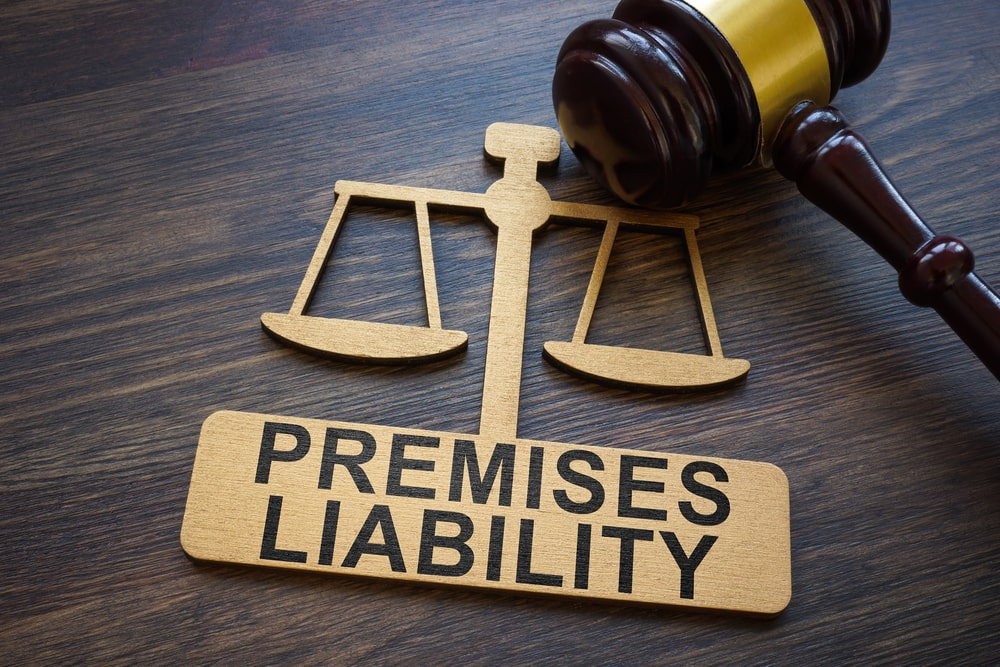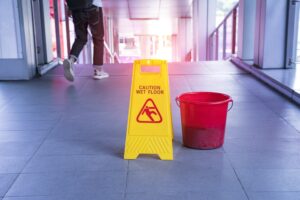Premises Liability Injury Lawyers in Topeka, Kansas

Property owners in Topeka have a responsibility to provide a safe environment that prevents possible injuries for visitors, guests, and customers.
If a guest or visitor is injured on their premises and the necessary precautions have not been taken, the property owner can be held liable for damages.
Accordingly, under Kansas premises liability law, injured visitors may be able to seek compensatory damages after suffering an injury on someone else’s property.
Whether you find yourself in this situation or you are a property owner facing a lawsuit from an injured third party, speak to one of our premises liability lawyers in Topeka for advice on your legal rights and options.
What is premises liability law in Kansas?
People can suffer many types of accident injuries on other people’s premises—but regardless of the nature of the injury, if it was due to a lack of safety resulting from the property owner’s negligence, a claim for the losses incurred may be advisable.
Most commonly in Topeka, we see the following types of accident injuries resulting in premises liability claims:
- Dog bite injuries: pet owners may be held liable for dog bite injuries if they fail to put adequate measures in place to control their dogs.
- Slip and fall injuries: if an individualslips, trips or falls due to preventable hazards, such as poor lighting on staircases or wet floors, the property owner may be held liable.
- Property defects: broken handrails, missing tiles or broken steps are good examples of building defects that can lead to preventable injuries,
- Negligent security: inadequate security measures can lead to liability for preventable criminal acts that harm visitors or guests.
What are the key elements of premises liability law in Kansas?
There are three main elements of premises liability law in Kansas. Both property owners and those who suffer injuries should get to grips with what’s behind a duty of care, negligence, and proving liability.
Let’s take a closer look at each below…
What is the statute of limitations on premises liability claims in Kansas?
If an injured party wants to sue for premises liability in Kansas, a lawsuit must be filed within two years of the date of the incident that caused the injuries. Beyond this time limit, the complainant may lose the right to file for damages in the Kansas courts.
How can property owners avoid future premises liability claims?
Property owners are advised to take the following precautions to avoid premises liability lawsuits being filed against them by injured visitors:
- Promptly repair any known hazards and document them
- Post signs or use barriers to warn visitors of any known hazards
- Regularly inspect and maintain the property to prevent hazards—and document maintenance visits
- Ensure that the building complies with all building codes/regulations
- Install security cameras at access points and other key locations to ensure appropriate security is in place
How can visitors to properties avoid injuries?

Good general practice is to maintain awareness of one’s surroundings, observe potential hazards, and take reasonable precautions for your safety. You should also use any safety equipment or gear provided and wear appropriate footwear.
If you notice any hazards, report them to the property owner and, if you get injured, be sure to take pictures and note any discussions you have with the owner.
What are the possible defenses to a premises liability lawsuit?
If you’re involved in a premises liability lawsuit, it’s useful to be aware of the possible defenses that may be argued against a plaintiff’s claims.
In Kansas, the most common defenses for premises liability are as follows:
- The hazard didn’t cause the injury as claimed: if the property owner can show that the conditions were not hazardous and, instead, the visitor’s clumsiness caused the injuries, he/she has not breached the duty of care and cannot be held liable.
- The “hazard” was obvious: if the property owner ensures that a dangerous situation is flagged so that a reasonable person has notice of it, he/she cannot usually be held liable for the ensuing injuries unless no reasonable alternative was available to the injured party but to pass it.
- The landlord was not responsible for the hazard: if, for example, snow falls overnight and creates a temporary hazard, the property owner is not usually responsible for any accident injuries caused.
- The property owner did not have notice of the hazard or time to remedy it: temporary hazards may sometimes occur on premises that cater to the public, e.g., a supermarket where an item is broken and spills on the floor. The property owner can usually only be held liable for the injuries caused if there is sufficient time to react to the hazard and no action is taken.
Because of the multiple possible defenses, plaintiffs should be aware of the challenges in claiming fair compensation for their accident injuries and seek suitable legal advice.
If you or a loved one has been injured on another property, speak to a personal injury lawyer at Irigonegaray & Revenaugh during a free case evaluation. We can advise you of your legal options and assess how best to claim compensation for your injuries.

Affordable

Top Quality Legal Advice

Experienced
Testimonials
My experience with Nicole Revenaugh was beyond my expectations as her passion, knowledge, and kindness showed clearly as she assisted me with my legal needs while also clearly communicating at each step of the process and clearing up any questions I had with ease!
Pedro Irigonegaray is one of the most experienced, knowledgeable, professional and compassionate attorneys I have ever known. When you need legal advice or someone to fight for you, get the best. Talk to Mr. Irgonegaray.
Very helpful. Very friendly. Very personable. Even if you need to know which direction to go with your issue, they’ll help show you the way even if it means you don’t need to go through them. We need more kind people like this!
I have known Pedro for many years. A true gentleman, capable and ethical attorney. Glad to see the firm expand with more talented and ethical attorneys. A real asset to the Topeka legal community.
Very impressed with their attention to detail, prompt service and professionalism. Highly recommend.
Passion for everyone’s rights, especially — but not exclusively — LGBTQ.
There are no words to express my gratitude for this law firm. Pedro Irigonegaray represented my family a few times. Mr. Irigonegaray is a very honest, direct, and diligent attorney. We found the entire staff to be very caring, kind, and helpful. This law firm is definitely full of good people!!
Book a free consultation with one of our attorneys to discuss your case.
